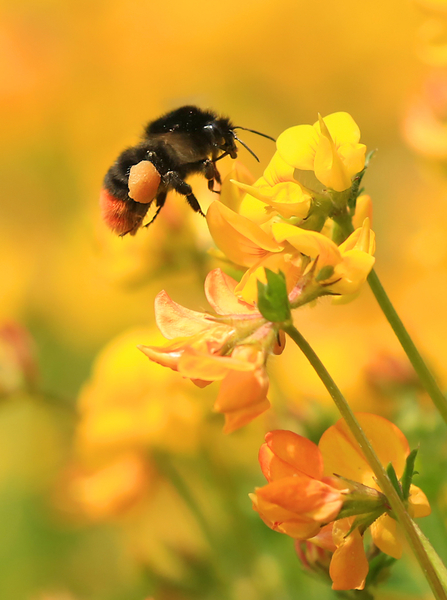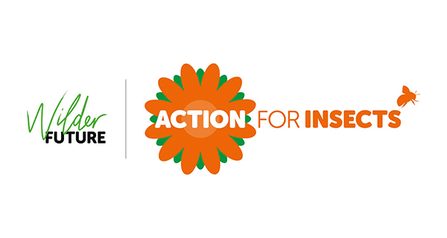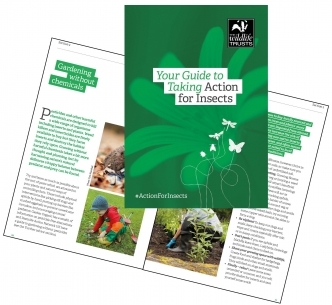Without insects many birds, bats, reptiles, amphibians, small mammals and fish would die out as they would have nothing to eat.
41% of insect species face extinction
Will you help the most important creatures on the planet?
The loss of their habitats and overuse of pesticides are two major reasons why these little creatures are dying out eight times faster than large mammals.However, it’s not too late and with your help, we can put insects into recovery. Scroll down to #TakeActionForInsects
Claim your FREE Action for Insects guide and start to make a difference today!
By working together, we can change the future of insects.
Starting right now, you can make small changes in your home, lifestyle and community that'll help these fascinating creatures. Follow the advice in our Action for Insects guide and create an insect-friendly garden that's teaming with wildlife.
How will our FREE Action for Insects guide help you to make a difference?
Packed full of easy to follow advice and tips, our free Action for Insects guide will help you to:
- Create a wildlife and insect-friendly garden
- Plan your garden and choose the right plants
- Stop using harmful chemicals inside your home and in your garden
- Make lifestyle changes that will benefit insects
- Find out more interesting facts and information to help create a Wilder Cumbria
Find out why insects are dying out at such an alarming rate - and how together, we can stop it.
How can we help reverse the decline in insects?

Professor Dave Goulson tells us why he is supporting The Wildlife Trust's Action for Insects
Why should we care?
Without insects many birds, bats, reptiles, amphibians, small mammals and fish would die out as they would have nothing to eat.
87% of all plant species require animal pollination, most of it delivered by insects – that is pretty much all of them except grasses and conifers.
In addition 3 out of 4 of all the crops that we grow require pollination by insects.
Only by working together can we address the causes of insect loss, halt and reverse them and secure a sustainable future for insect life and for ourselves
Together, we can stop this alarming loss and create an environment that is rich in nature for the benefit of wildlife and people.






